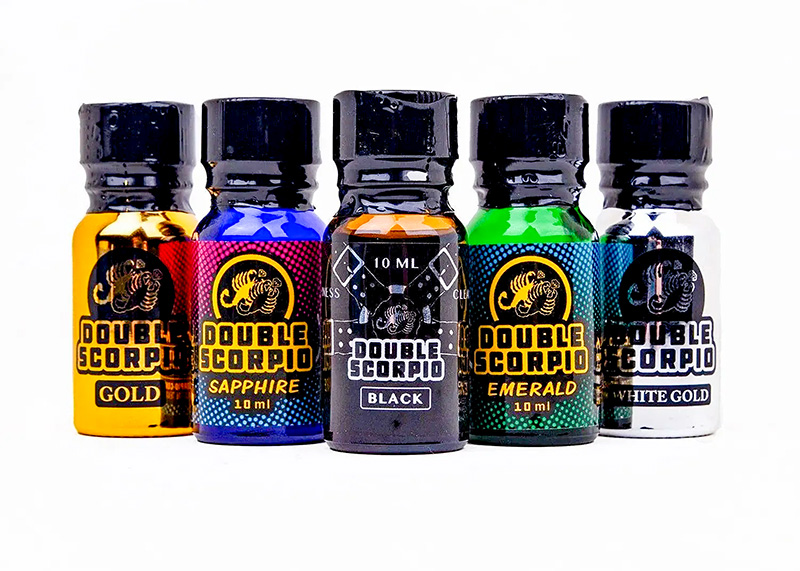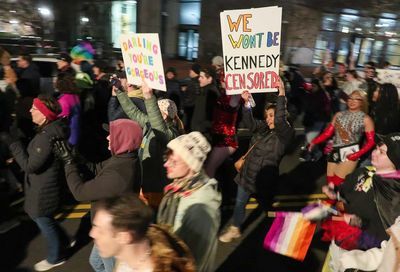Qatar Deports Gay Flight Attendant for Wearing Tinted Moisturizer
"You have no rights. This is Qatar," authorities told a gay flight attendant who had been arrested for wearing makeup.

Qatari security services reportedly detained and interrogated a former Qatar Airways flight attendant for wearing “tinted moisturizer,” which is perceived by authorities as a sign of possible homosexual behavior and illegal in the country. That flight attendant was subsequently fired and deported.
Gilbert Ignatius was arrested while celebrating his 32nd birthday with friends at the Mondrian Hotel in Doha in May of 2023. The group attempted to visit another hotel for drinks but were stopped by a security guard for their appearance, according to iNews.
According to Ignatius, the security guard told them that an officer from CID, Qatar’s Criminal Investigation Department, wished to speak to them. The guard led him and his friends to two CID officers, who brought them to a security room behind the hotel entrance.
Once there, one of the officers ran a wet wipe across Ignatius’s face and the face of one of his friends, picking up traces of tinted moisturizer on their skins. Even though Ignatius protested that they did not have consent, the officers ignored him and demanded the men’s phones and ID cards.
Gilbert refused to comply with the order to hand over his belongings at first, demanding to speak to a representative from the Indonesian embassy. He was told that if he refused, he would be jailed.
He and his friend were then taken to a local police station and interrogated about whether they were prostitutes engaging in sex for money schemes or whether they’d been involved in homosexual acts.
“It’s humiliating,” Ignatius said of the experience. “The first thing they asked me was, ‘How much do you earn every night? How much if you fuck him and how much if he fuck you? I know what you’re doing.'”
The police cited the tinted moisturizer, along with the Hermes belt Ignatius was wearing at the time, as “evidence” that the two were engaging in prostitution, which — like homosexuality — is punishable by up to 10 years in prison.
“I am not a prostitute,” Ignatius recalled telling the officer, after which the officer slapped his right cheek. After Ignatius demanded to speak to his embassy, the officer reportedly said, “You have no rights. This is Qatar.”
The interrogation continued for several more hours. Officers discovered a photo of Ignatius shirtless at Bangkok Pride, which they claimed was more evidence of homosexuality and prostitution.
Ignatius claims the officers forced him to sign a paper, written in Arabic, which he cannot read or speak, and collected his fingerprints, and took a mug shot of him before eventually releasing him.
The following day, Qatar Airways, which is owned by the Qatari government, told him he was grounded and held his passport. Weeks later, a representative for the airline drove Ignatius and his friend to a border post near Saudi Arabia, where their passports were handed over to police. The men were told they had been deported from Qatar.
Ignatius and his friend were given three days to pack their belongings and were flown back to Indonesia, without any official explanation for what happened to them.
He has been banned from visiting Qatar, and lost not only his flight attendant job, but his home. He has since found a new job with Australia’s JetStar Airways, but says he remains “traumatized” by the experience, resorting to sleeping pills to help him cope with the stress and anxiety he feels.
It is common for law enforcement authorities, in Qatar and in other countries with laws criminalizing homosexuality, to charge individuals perceived to be gay with charges of sex work, drug dealing, “disturbing the peace,” offending “public morality,” or engaging in “unnatural acts.”
The erroneous charges serve as a way for authorities to attack homosexuality without directly admitting that’s why they’re being targeted for detention or arrest.
Qatar previously came under scrutiny when it hosted the World Cup last year, with many human rights advocates claiming the government was engaging in a harsh crackdown on LGBTQ visibility, whether real or perceived. The Qatari government has also been accused of other human rights abuses.
“It’s getting worse,” Ignatius told iNews. “Right after the World Cup, a similar incident that later happened to me has been happening a lot. There were lots of undercover police doing this in shopping centers, restaurants, clubs and bars, targeting mostly people from emerging countries like the Philippines, Indonesia, and Thailand. They’re wiping people’s faces, and those found to be using makeup or anything that is tinted are eventually deported.
“I need this story to be heard all over the world. LGBTQ people need to know what trap is waiting for them there. I don’t want this to happen to other people.”
Support Metro Weekly’s Journalism
These are challenging times for news organizations. And yet it’s crucial we stay active and provide vital resources and information to both our local readers and the world. So won’t you please take a moment and consider supporting Metro Weekly with a membership? For as little as $5 a month, you can help ensure Metro Weekly magazine and MetroWeekly.com remain free, viable resources as we provide the best, most diverse, culturally-resonant LGBTQ coverage in both the D.C. region and around the world. Memberships come with exclusive perks and discounts, your own personal digital delivery of each week’s magazine (and an archive), access to our Member's Lounge when it launches this fall, and exclusive members-only items like Metro Weekly Membership Mugs and Tote Bags! Check out all our membership levels here and please join us today!
























You must be logged in to post a comment.